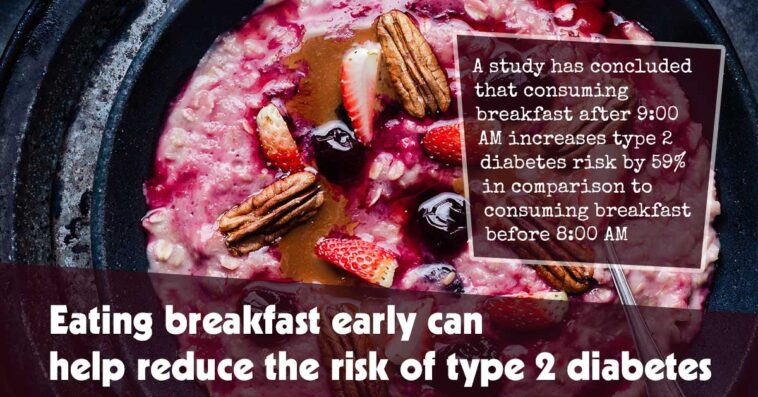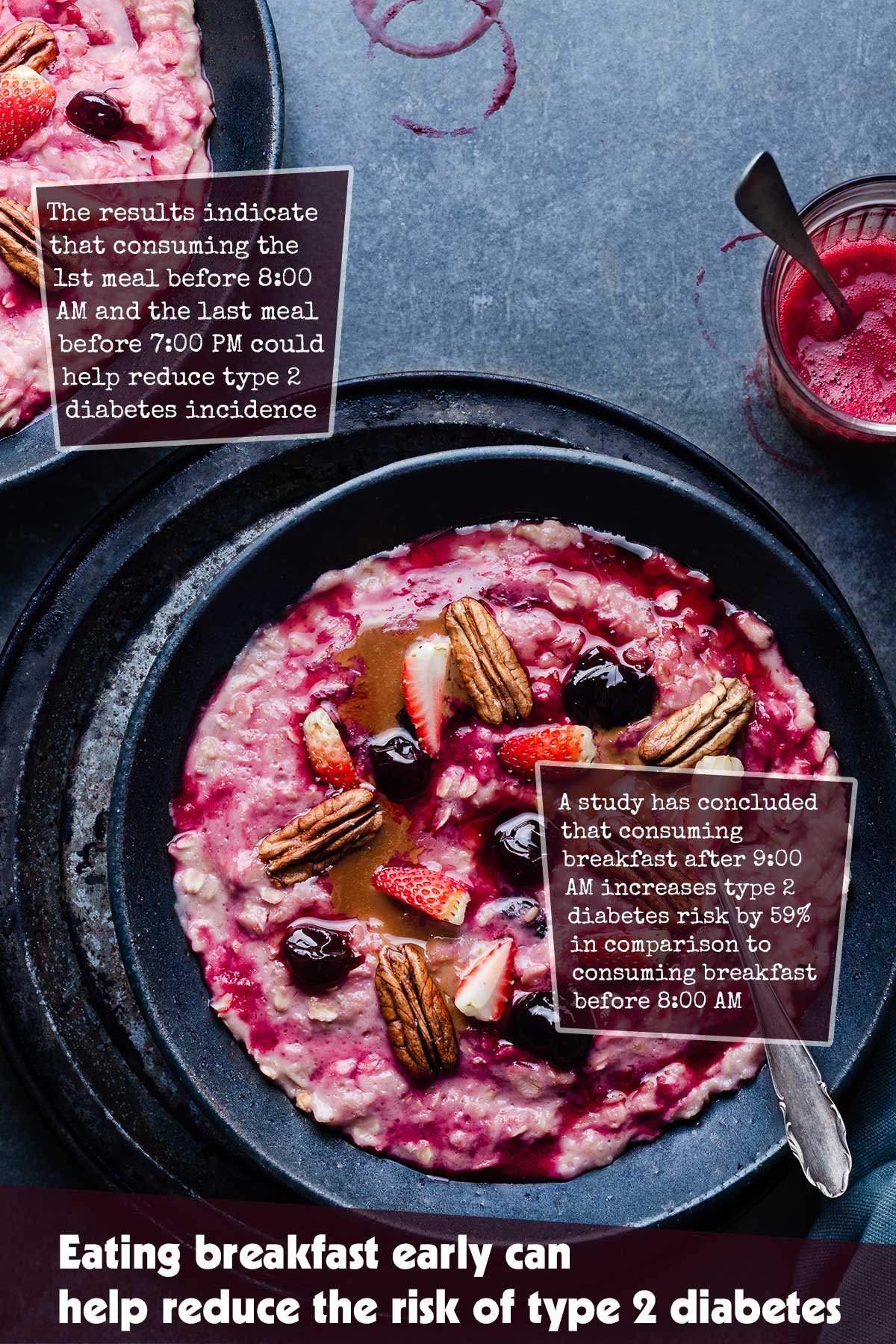A study that followed over 100,000 individuals from the NutriNet-Santé cohort has concluded that consuming breakfast after 9:00 AM increases type 2 diabetes risk by 59% in comparison to consuming breakfast before 8:00 AM.1✅ JOURNAL REFERENCE
DOI: 10.1093/ije/dyad081
The results reveal the risk of diabetes can be reduced not just by changing what is eaten, but also when meals are eaten.
Type 2 diabetes is linked to modifiable risk factors, which include smoking, physical inactivity, and an unhealthy diet. Another factor could however be significant: the time at which meals are eaten.
It’s known that the timing of meals plays an important part in the regulation of circadian rhythms and lipid and glucose control, but little research has looked into the connection between the timing of meals or fasting and the risk of type 2 diabetes.
In this study, the association was investigated between the frequency and timing of meals and type 2 diabetes incidence in 103,312 individuals. Online dietary records were filled in by participants of what they consumed over 24 hours on 3 non-consecutive days, along with their timing of meals.
The dietary records were averaged for the first 2 years of follow-up and the health of the participants was evaluated over the following 7 years on average.
There were 963 new type 2 diabetes cases throughout the duration of the study. The disease risk was significantly higher in those individuals who regularly consumed breakfast after 9:00 AM, in comparison to individuals who consumed breakfast before 8:00 AM.
This makes sense biologically, as lipid and glucose control is known to be affected by skipping breakfast, in addition to insulin levels. This is in line with 2 meta-analyses that have concluded that type 2 diabetes risk is increased by skipping breakfast.
The researchers also observed that consuming dinner late after 10:00 PM appeared to increase the risk, with consuming meals more frequently, approximately 5 times each day, linked to a lower incidence of disease.
On the other hand, prolonged fasting is only of benefit if it’s implemented by consuming breakfast early before 8:00 AM together with an early dinner.
The results indicate that consuming the 1st meal before 8:00 AM and the last meal before 7:00 PM could help reduce type 2 diabetes incidence.
These results taken together consolidate using the association between circadian rhythms, diet, and health known as chrononutrition for preventing type 2 diabetes as well as other chronic diseases.




